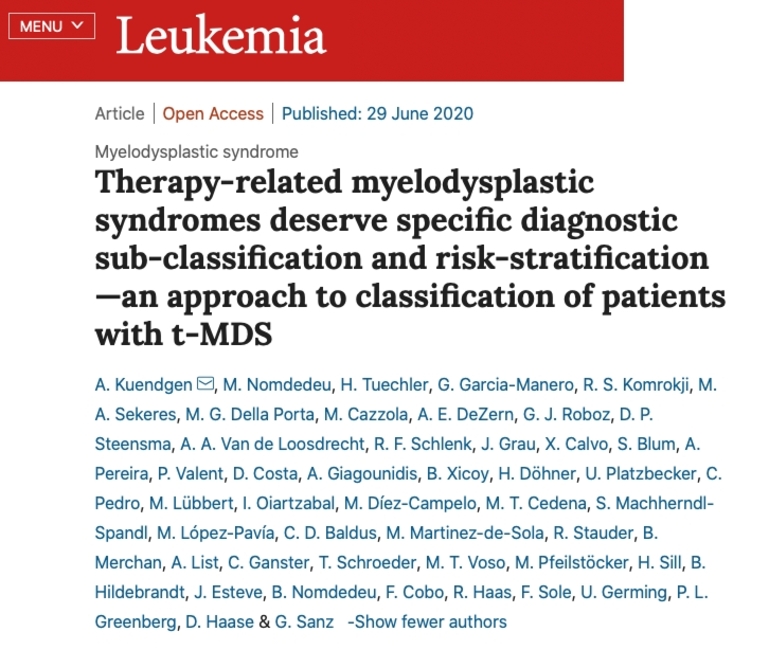New classification and prognosis of Secondary Myelodysplastic Syndromes published in Leukemia
Francesc Solé, leader of the Myelodysplastic Syndromes group and Blanca Xicoy, leader of the Myeloid Neoplasms group, both from the Josep Carreras Leukaemia Research Institute, collaborate in an article published in Leukemia on the classification and prognosis of Secondary Myelodysplastic Syndromes.

The article “Therapy-related myelodysplastic syndromes deserve specific diagnostic sub-classification and risk-stratification-an approach to classification of patients with t-MDS” is the result of the work of the worldwide group of Myelodysplastic Syndromes coordinated by Ulrich Germing (Heinrich-Heine-Universität Düsseldorf), Detlef Haase (Universitätklinikum Göttingen), Peter Greenberg (Stanford MDS Center), Guillermo Sanz (Hospital Universitario y Politécnico La Fe) and Francesc Solé.
The International Work Group for Prognosis in MDS (IWG-PM) has previously generated the revised IPSS-R prognostic stratification system for MDS and is currently evaluating the impact of molecular mutations on the prognosis, what would be named the IPSS-M (molecular).
The current WHO classification (2017) proposes the entity "Therapy related myeloid neoplasms (TRMN)" or therapy related myeloid neoplasms, which encompasses acute myeloblastic leukemias (AML), MDS and MDS/myeloproliferative neoplasms (MDS/MPN) secondary to a previous neoplasm and treatment. In the present work, based on a database of patients from IWG-PM centers, clinical and biological characteristics from patients with the diagnosis of secondary MDS are compared with primary or de novo MDS. The results suggest that within the NRT entity, 3 groups should be made, secondary AML, secondary MDS/MPN and secondary MDS, since they are diseases with different clinical and biological characteristics. These results are the basis for a second study led by Detlef Haase and Francesc Solé, which aims to correlate cancer and previous treatment with cytogenetic changes.